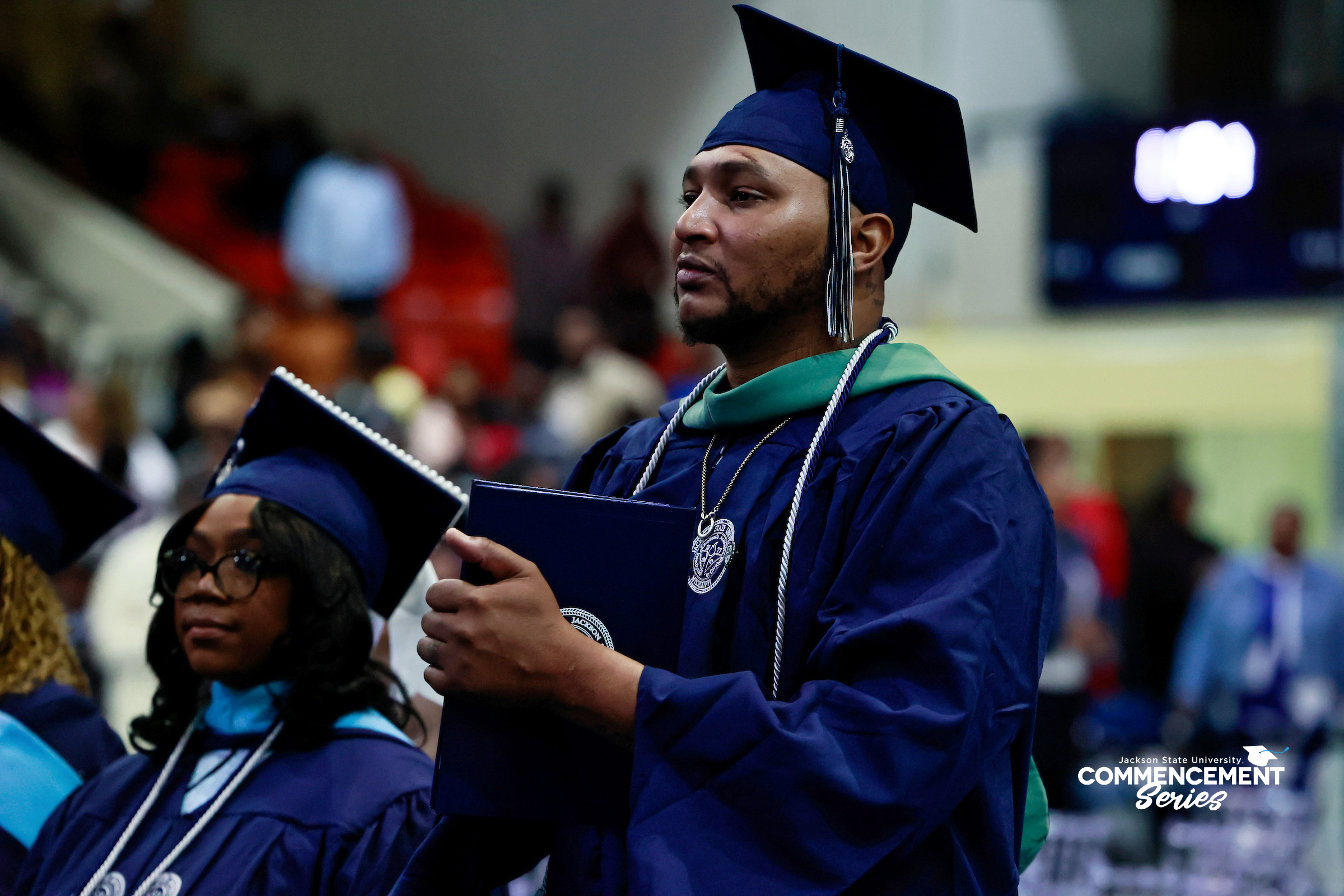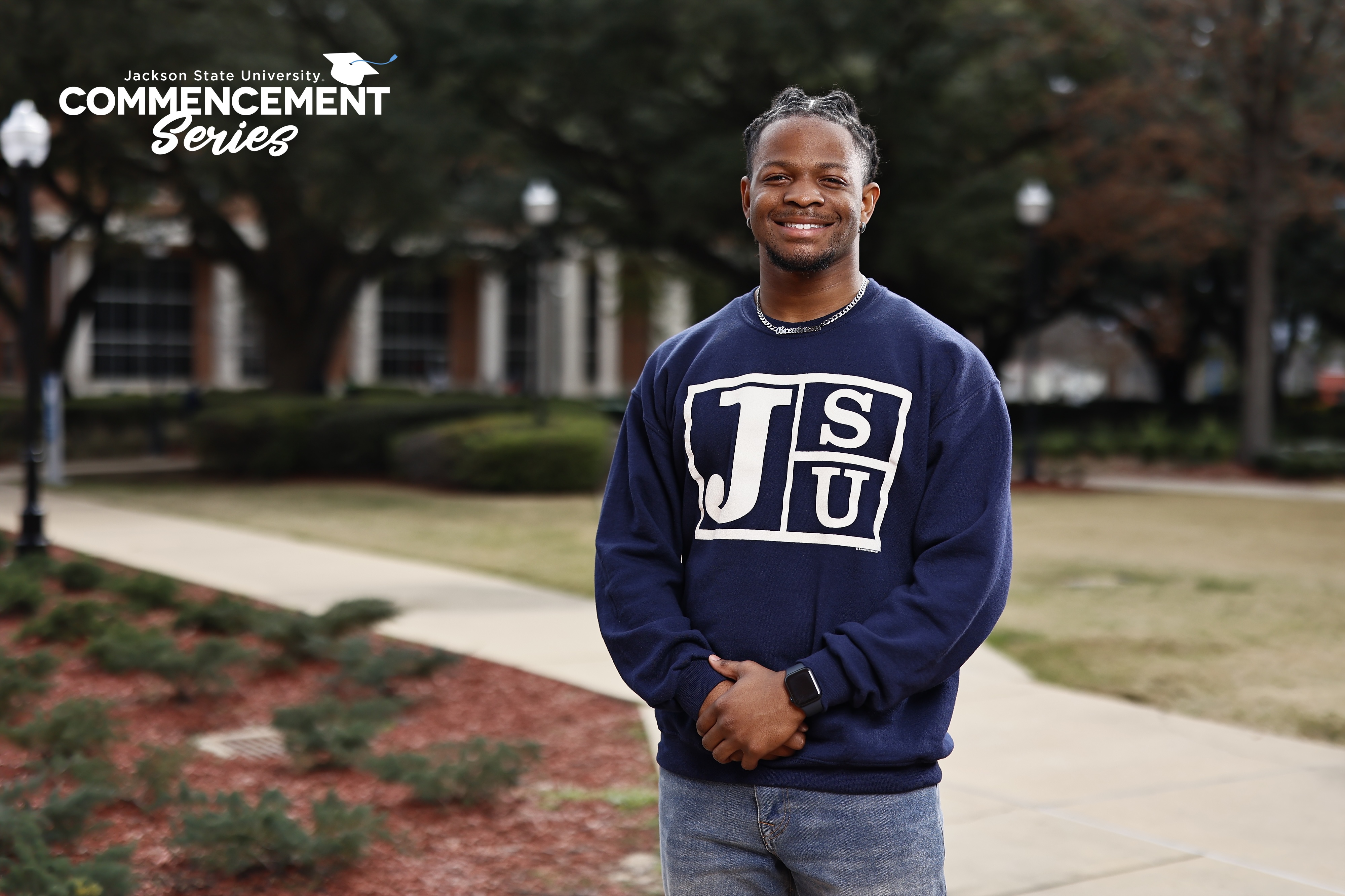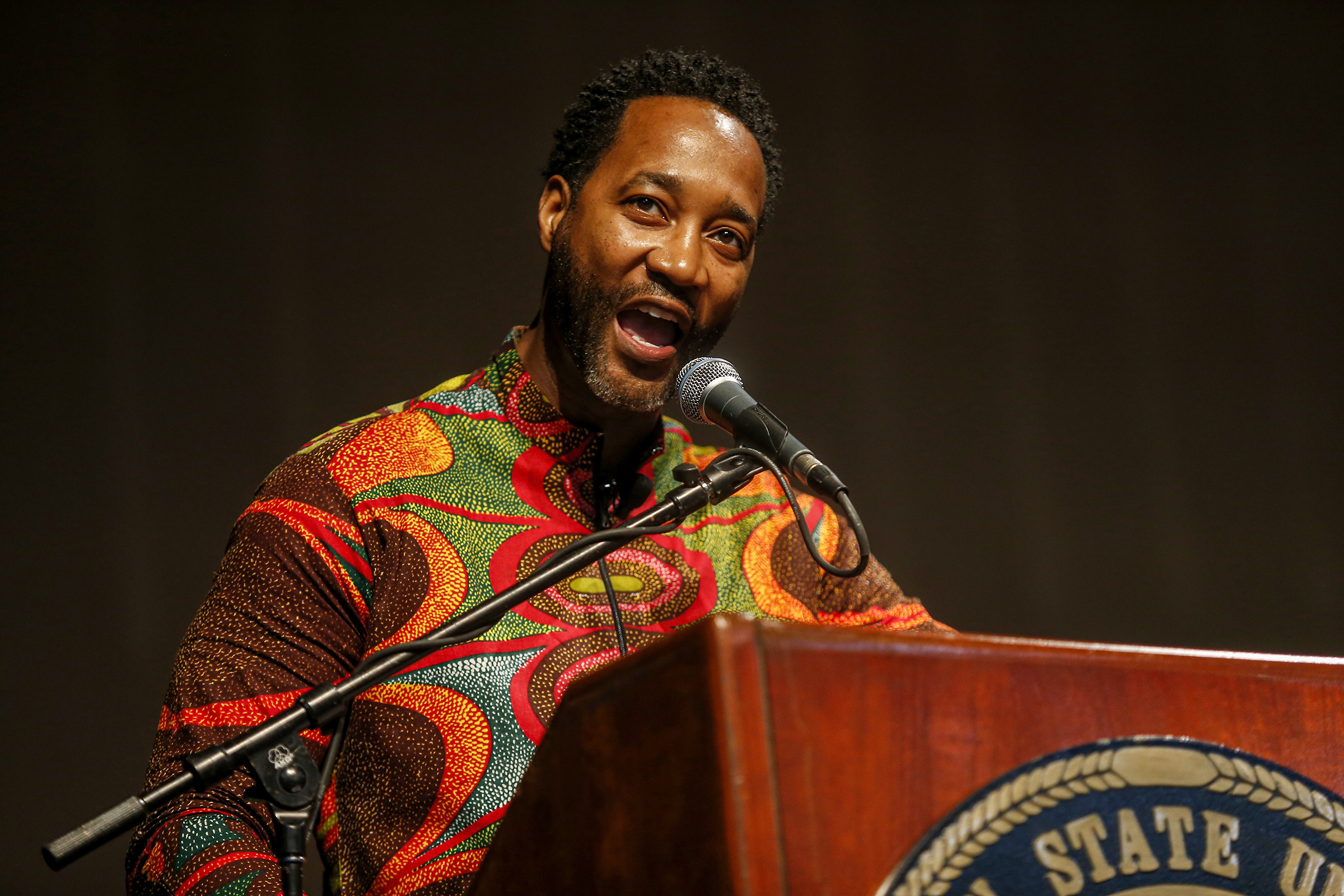
![]() [hr][hr]
[hr][hr]
Educator and film and TV actor Yohance Myles brought a message to Jackson State University of hope and of tearing down walls and limitations.
In his keynote address Feb. 11 at JSU’s Black History Convocation in Rose E. McCoy Auditorium, he encouraged the audience to discover and share unheard stories and voices across the world and, most importantly, in their local community.
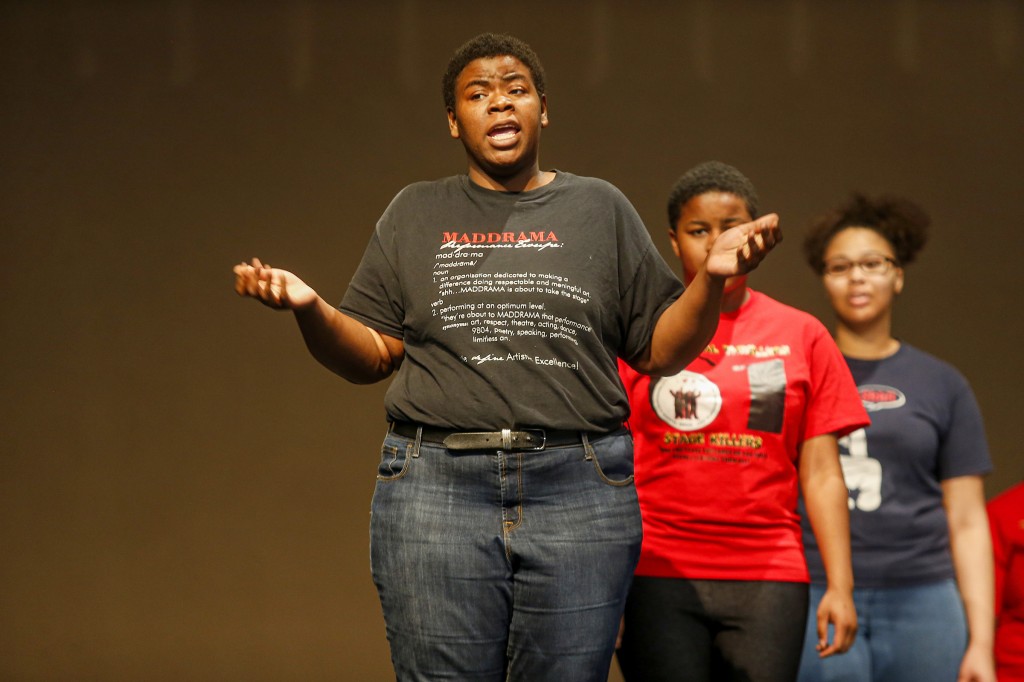
“If we fail at doing this, there are negative forces forever present that will continue to perpetuate the stereotypes that define those limitations often placed on the African-American experience, and we cannot afford that,” said Myles, a married father of four boys and one girl.
Failing to carefully observe and responsibly share those stories can mistakingly and inappropriately contribute to the miseducation and understanding of a global group of people, he said.
Pulling from his expertise as an educator, Myles explained that exercised within the walls of higher learning are interdisciplinary studies, cross-cultural opportunities, multiracial diversity, and learning abroad programs to further the goal of global interaction.
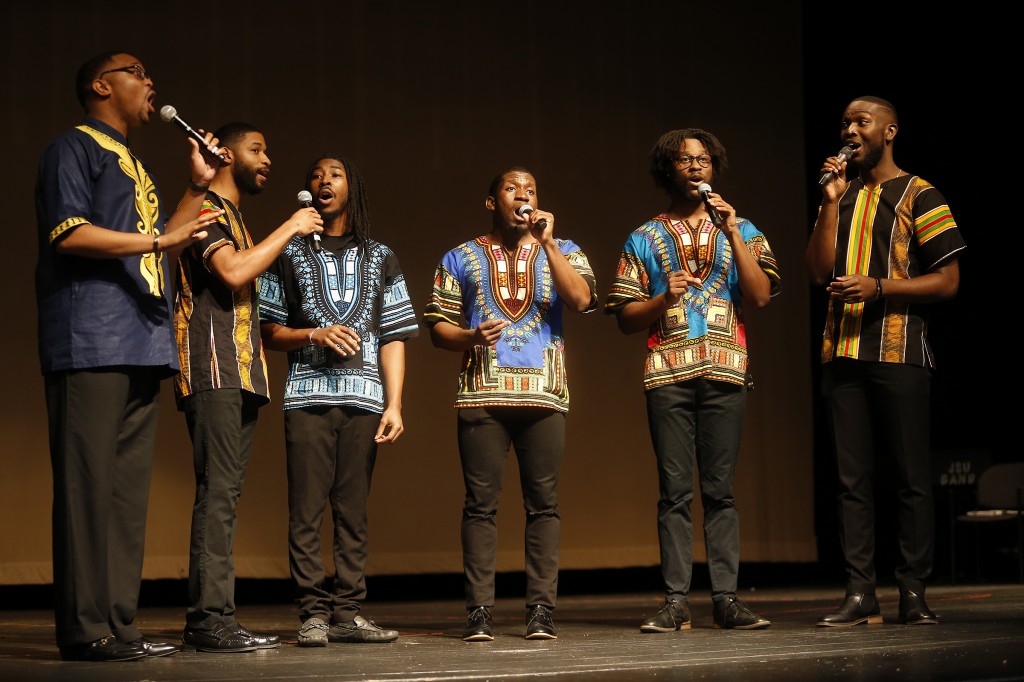
Myles called for continued sensitivity and an open mind in acknowledging and embracing the tribal call from the ancestors, saying it still resounds from Africa, the Caribbean, Australia, the Diaspora, the bloody and sacrificial soil, and a mirror in the ghettos.
“The voices of my ancestors still resound in our upscale neighborhoods as we sometimes become far too removed spiritually and mentally from where we come from,” he said.
The tribal call, he said, is heard from the mountains of Alabama, the swampy terrain of Louisiana, the fertile Delta of Mississippi from Florida to Georgia, the Carolinas, and the deep South. He then requested that gratitude be given for those who fought and died as a sacrifice for equality, freedom, love and a purposeful life.
“To our surviving veterans, those of pageant wars, those from the civil rights movement; we say thank you, and we give honor to you,” said Myles, before asking the audience to give them a round of applause.
The Birmingham, Alabama, native expressed gratitude for the fortitude of Jackson State University and its leadership. Myles then called for reflection while asking what separates individuals as a group and what connects them.
“There is a visible thread of hope used to produce the garment of human civilization. That visible thread is of language, art, music, poetry, food, writing, literature,” he continued. “Mass communication, theater, dance, fashion, science, political science, philosophy, law, business, and education, all woven into the very DNA of our identity and every human being represented in this room that makes it all so special.”
He then posed, “What is the JSU perspective?” before stating that despite an individual’s physical characteristics, sexual orientation, socioeconomic class, discipline or career; all people are woven together by their “beautiful rare array” of life experience.
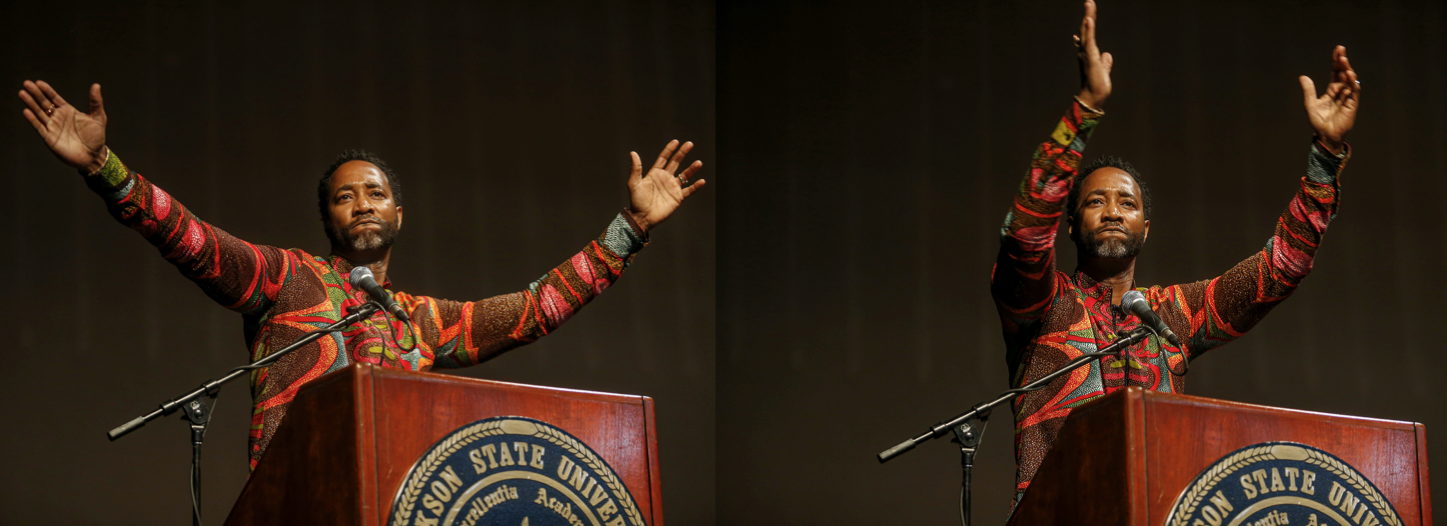
The former JSU theater professor asked for the fearless and robust of faith to heed the calling from their ancestors. He warned that those answering the call must be willing to give of themselves unselfishly, without the best or no reward, work long and tedious hours, sacrifice family, friends, and health while having the judgment of the world on their backs.
“The JSU perspective is real,” he voiced.
For Myles, the JSU perspective is what saved a “country city boy from a functional, yet dysfunctional community called Central Park.” As a first-time student at Jackson State, Myles described himself as a young man representing the pride and rich history of Birmingham.
He credited one of his professors, Dr. Tonea Stewart, noted actor and JSU alum, for challenging and cultivating him. Myles said Stewart dared him to believe and discover his greatness. And, Stewart willed him to be “successful, artistically bold, to exude black excellence, to have empathy and advocate for the poor of heart and spirit.”
“That thread of love and wisdom from her that gently poured into me to be all that I am today. It is that very fabric that I’m speaking about,” said Myles. “That beautiful garment of the African-American experience saved my life.”
Before leaving the podium, Myles asked the audience to ponder if they are operating on their journey as a physical being or a human being.
“Are you a human – being, or are you being human?”
The event organized by the Department of Music, Department of Art and Theatre, and Student Government Association featured the Ritz Chamber Players, MADDRAMA, and remarks from Grant Broadway, Mister JSU, Naysa Lynch, Miss JSU, and Jordan Jefferson, president of the SGA.
Scottie Willis, coordinator of student leadership, shared that the program was developed for students by students. “It’s really important for students to attend these types of events. A lot of times our history is not fully exposed in the classroom. This is a celebration of who we are as a people,” said Willis.
Willis credits JSU Chief of Staff Dr. Debra Mays-Jackson for the push behind the program.
“Because it’s black history, I think it is most appropriate for us an HBCU, to hold a Black History Convocation. It is important to never forget the events and people who sacrificed themselves to ensure we live a life of freedom and choice. I am so proud of those who carried out my suggestion. I thoroughly enjoyed it,” said Mays-Jackson.



